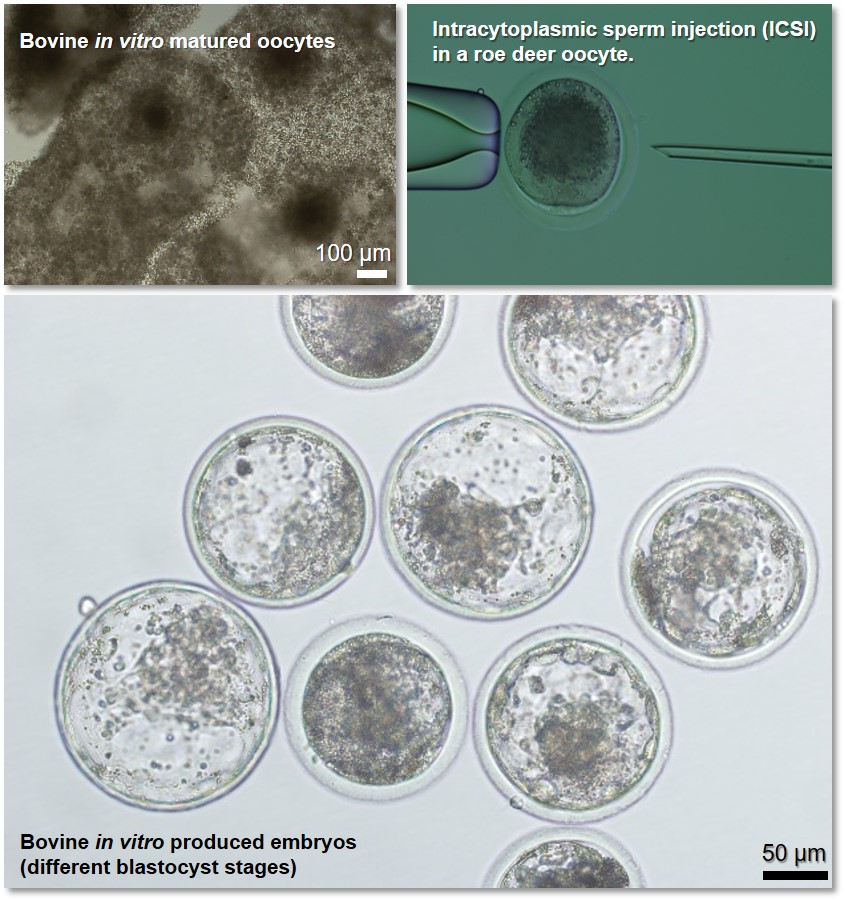ART in livestock and wild animals
In animals, the success or failure of reproductive processes is in a fragile balance and depends on multiple factors such as behaviour, age, hormonal and nutritional status, gamete reserve and production, heredity, reproductive tract characteristics, environmental conditions and production systems. Over the years, animal fertility has been compromised in different species, as a result of many anthropogenic factors including different stressors. Several pathophysiological mechanisms of the effects have been studied, but numerous remain unclear to date. This makes it difficult to establish correctives. Therefore, our research involves diverse ex vivo and in vitro animal models to study embryo-maternal communication as well as gamete and embryo physiology to create mechanisms to improve fertility and thus sustainable animal production. Our projects comprise in vitro approaches to promote concept of the 3R (Replacement, Reduction and Refinement of animal research). Our technologies include in vitro embryo production, gamete and embryo cryopreservation, oocyte and embryo micromanipulation, such as intracytoplasmic sperm injection (ICSI), embryo time lapse imaging and uterine/oviduct cell culture. Furthermore, we apply the most advanced methods such as transcriptomics, proteomics, metabolomics and further -omics in smallest samples such as single embryos and single cells.

